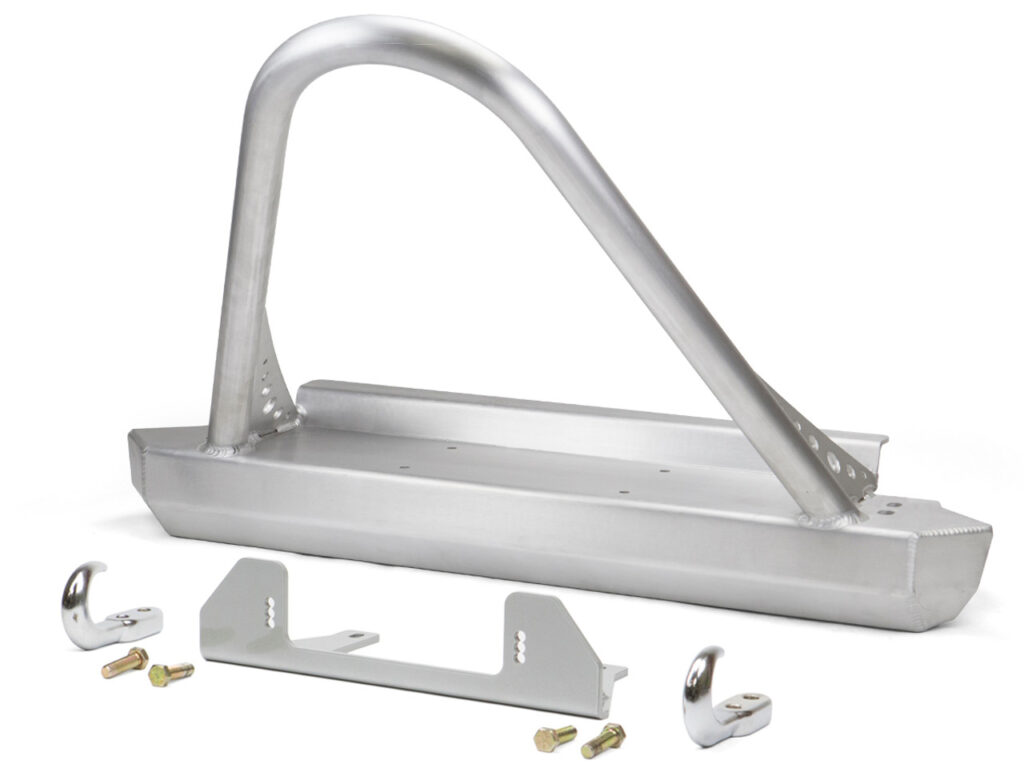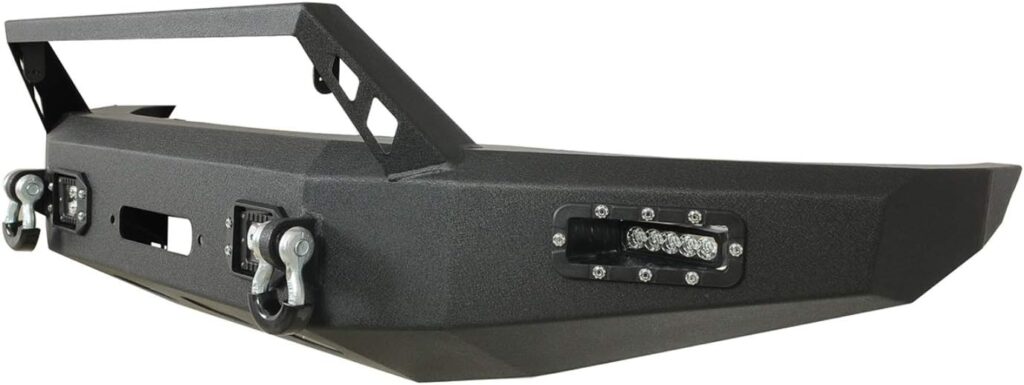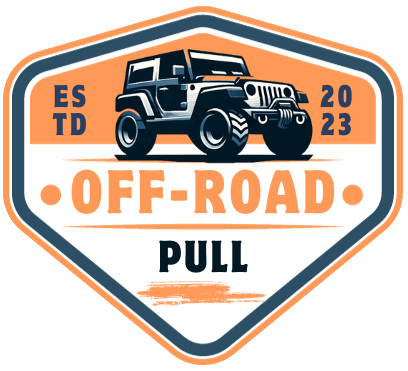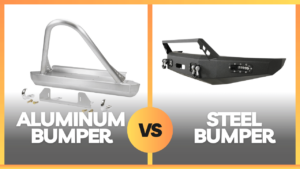In this guide, I’ll walk you through the key differences between aluminum and steel winch bumpers, helping you make an informed decision for your off-road adventures.
Quick Summary
Aluminum winch bumpers offer lightweight, corrosion-resistant, and low-maintenance benefits, ideal for moderate off-roading and daily driving. Steel winch bumpers provide superior strength and durability, making them the best choice for extreme off-roading and heavy-duty use.
Overview of Aluminum Winch Bumpers

Lightweight Properties
Aluminum winch bumpers are known for their lightweight nature. This makes them an excellent choice for those who want to keep their vehicle’s weight down.
A lighter bumper means less strain on your suspension and better fuel efficiency, allowing you to travel further on a tank of gas.
Corrosion Resistance
One of the standout features of aluminum is its natural resistance to corrosion. Unlike steel, aluminum doesn’t rust when exposed to moisture and other elements.
This makes it a great option for those living in humid or coastal areas where rust can be a major issue.
Aesthetic Appeal
Aluminum bumpers often have a sleek, polished look that can enhance the overall appearance of your vehicle.
They are also easier to mold into various designs, giving you more options to customize the look of your off-road rig.
Overview of Steel Winch Bumpers

Strength and Durability
Steel winch bumpers are the go-to choice for many off-road enthusiasts due to their superior strength and durability.
Steel can handle heavy impacts and rough terrains better than aluminum, making it ideal for extreme off-roading conditions.
Traditional Choice for Off-Roading
For decades, steel has been the standard material for winch bumpers. Its proven track record in off-roading makes it a trusted option for those who demand the best performance from their equipment.
Variety of Finishes Available
Steel bumpers come in a variety of finishes, including powder-coated and painted options, which not only enhance their look but also provide additional protection against the elements.
Also check: Best Winch Bumpers
Comparison: Aluminum vs Steel Winch Bumpers
Weight
The weight difference between aluminum and steel bumpers is quite significant, and this impacts various aspects of vehicle performance.
Aluminum winch bumpers are much lighter than their steel counterparts. This lighter weight means that your vehicle can handle more nimbly and with less strain on the suspension system.
A lighter bumper also improves fuel efficiency. When your vehicle carries less weight, it doesn’t have to work as hard, which translates to better mileage.
For daily driving and long off-road trips, this can lead to noticeable fuel savings.
On the flip side, steel bumpers are heavier. While this added weight might slightly reduce fuel efficiency, it also contributes to better stability and impact resistance.
A heavier bumper can help keep the vehicle grounded and stable, especially in challenging off-road conditions.
The added mass can absorb more energy during impacts, providing better protection to the vehicle’s front end.
Strength and Durability
When discussing strength and durability, steel winch bumpers come out on top. Steel is incredibly strong and can withstand severe impacts, which is crucial for extreme off-roading.
It’s the preferred choice for off-road enthusiasts who regularly tackle rocky terrains, dense forests, or other harsh environments. Steel bumpers are less likely to bend or break under pressure, ensuring your vehicle remains protected.
Aluminum bumpers, while not as strong as steel, still offer considerable durability. They are perfectly adequate for moderate off-roading and daily driving.
Aluminum can handle most obstacles and impacts you might encounter, just not the extreme ones that steel can endure. For many drivers, aluminum’s durability is more than sufficient for their needs.
Corrosion Resistance
Aluminum has a natural resistance to corrosion, making it an excellent choice for those who live in humid or coastal areas where moisture and salt can quickly rust other metals.
This corrosion resistance means aluminum bumpers require less maintenance over their lifespan, saving you time and money on upkeep.
Steel, while strong, is prone to rust if not properly maintained. To combat this, steel bumpers are often coated with protective finishes like powder coating or paint.
These finishes help protect against moisture and prevent rust, but they can wear off over time and may require reapplication. Regular maintenance is necessary to keep steel bumpers in top condition and to avoid rust-related issues.
Cost
The initial cost of aluminum bumpers is generally higher than that of steel bumpers. This is due to the higher cost of aluminum as a raw material and the manufacturing processes involved in shaping and finishing aluminum bumpers.
However, aluminum’s lower long-term maintenance costs can offset this initial investment. Since aluminum doesn’t rust and requires less upkeep, you might save money in the long run.
Steel bumpers, on the other hand, are usually more affordable upfront. They’re made from less expensive raw materials and have simpler manufacturing processes.
However, the ongoing maintenance to prevent rust and corrosion can add to the overall cost over time. You might need to invest in protective coatings and occasional repairs, which can increase the total cost of ownership.
Customization Options
Both aluminum and steel winch bumpers offer a range of customization options, allowing you to personalize your vehicle’s look and functionality.
However, aluminum is generally easier to mold into various shapes and designs. This ease of customization means you can find aluminum bumpers in a wider variety of styles, from sleek and modern to rugged and aggressive.
Steel bumpers, while more challenging to shape, still offer plenty of customization possibilities. They can be modified to include additional features like winch mounts, light bars, and recovery points.
Steel’s robustness also makes it easier to weld on extra accessories, enhancing its functionality for off-road use.
Factors to Consider When Choosing
Vehicle Type and Weight
When choosing between aluminum and steel winch bumpers, the type and weight of your vehicle are crucial considerations.
If you drive a lighter vehicle, such as a compact SUV or a smaller truck, aluminum bumpers might be more beneficial.
The reduced weight of aluminum helps maintain the vehicle’s agility and handling, which is particularly important for lighter vehicles.
This means your suspension and braking systems won’t be as heavily burdened, preserving their longevity and performance.
On the other hand, if you have a heavier truck or a full-size SUV, steel bumpers could be the better choice. Heavier vehicles can handle the extra weight of steel bumpers without significant impacts on performance.
In fact, the additional weight might improve stability, especially in off-road conditions where a lower center of gravity can enhance traction and control.
Intended Use
Your intended use of the vehicle plays a significant role in determining the best bumper material. For daily driving or light off-roading, aluminum bumpers are usually sufficient.
They provide enough protection for occasional trips on rough trails or unpaved roads, and their lighter weight can improve fuel efficiency for everyday driving.
If you frequently engage in extreme off-roading, such as rock crawling, heavy-duty trail riding, or navigating through dense forests, steel bumpers are typically the superior option.
Steel’s strength and durability make it more capable of withstanding harsh impacts and rough terrain. It provides better protection against damage from rocks, trees, and other obstacles you might encounter in extreme off-road conditions.
Climate and Environment
The climate and environment in which you primarily use your vehicle are also critical factors. If you live in a humid or coastal area, aluminum’s natural resistance to corrosion is a significant advantage.
Moisture and salt can quickly lead to rust and deterioration in steel bumpers, requiring more maintenance and protective coatings.
Aluminum, however, remains unaffected by these elements, offering a longer-lasting and low-maintenance solution.
In drier climates, where humidity and salt exposure are less of an issue, steel bumpers might not face the same level of rust concerns.
However, it’s still important to consider the environmental conditions you’ll be driving in.
For instance, if your off-roading adventures take you through muddy or wet areas, the additional corrosion resistance of aluminum can still be beneficial.
Budget Constraints
Your budget is a key factor in the decision-making process. Aluminum bumpers generally have a higher upfront cost due to the material’s expense and the manufacturing processes involved.
However, this initial investment can be offset by the lower long-term maintenance costs.
Since aluminum doesn’t rust, you’ll save on repairs and protective treatments over the years.
Steel bumpers are often more affordable initially, making them an attractive option if you’re working with a tight budget. Keep in mind, though, that the ongoing maintenance costs for steel can add up over time.
Regular inspections, repainting, and rust prevention treatments are necessary to keep steel bumpers in good condition.
Weighing the initial cost against the long-term expenses can help you make a more informed decision based on your financial situation.
Installation and Maintenance
Differences in Installation Process
Aluminum bumpers are easier to install because they are lighter. You can usually manage the installation with basic tools and minimal assistance.
Steel bumpers, however, are heavier and might need extra tools and more people to help with the installation.
Ongoing Care and Upkeep
Steel bumpers require regular maintenance to prevent rust and damage. You’ll need to check for rust, apply protective coatings, and possibly repaint them over time.
Aluminum bumpers, on the other hand, are naturally resistant to corrosion and need less frequent maintenance, making them easier to take care of in the long run.
What Off-Road Enthusiasts Say
Steel bumpers are often praised by off-road enthusiasts for their unmatched durability and strength.
Many drivers who tackle rugged terrains and extreme off-road conditions rely on steel bumpers because they can handle severe impacts and provide superior protection.
Testimonials often highlight how steel bumpers have saved their vehicles from significant damage during tough off-road adventures.
Users appreciate the peace of mind that comes with knowing their bumper can withstand harsh impacts and rough trails.
On the other hand, enthusiasts who value a lighter vehicle and easier maintenance frequently opt for aluminum bumpers.
These users often discuss how the reduced weight of aluminum bumpers improves their vehicle’s agility and fuel efficiency, making their off-road experiences more enjoyable.
They also appreciate the low-maintenance aspect, noting that aluminum’s natural corrosion resistance means they spend less time and money on upkeep.
Testimonials in this category often mention how aluminum bumpers have provided sufficient protection for their off-road needs while enhancing the vehicle’s overall performance and aesthetics.
Conclusion
Choosing between aluminum and steel winch bumpers depends on your specific needs and preferences. Consider factors like weight, strength, corrosion resistance, cost, and customization options. Both materials have their advantages and can enhance your off-road experience.
FAQ
Can aluminum bumpers support the same winch capacity as steel?
Yes, high-quality aluminum bumpers can support similar winch capacities as steel, but steel might handle extreme loads better.
How does the weight difference affect my vehicle’s performance?
A lighter aluminum bumper improves fuel efficiency and reduces strain on the suspension, while a heavier steel bumper provides more stability and impact resistance.
Are there hybrid options available?
Yes, some manufacturers offer hybrid bumpers that combine aluminum and steel to balance weight and strength.
Which material is better for extreme off-roading?
Steel is generally better for extreme off-roading due to its superior strength and durability.
How do aluminum and steel bumpers compare in terms of resale value?
Both types can maintain good resale value if well-maintained, but aluminum might hold value better due to its corrosion resistance.


